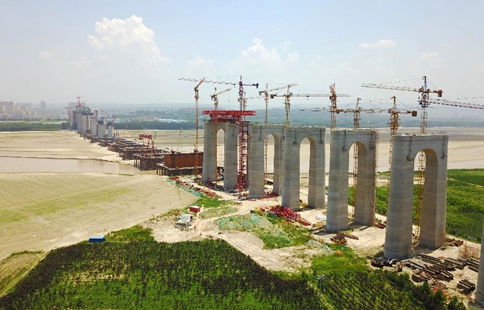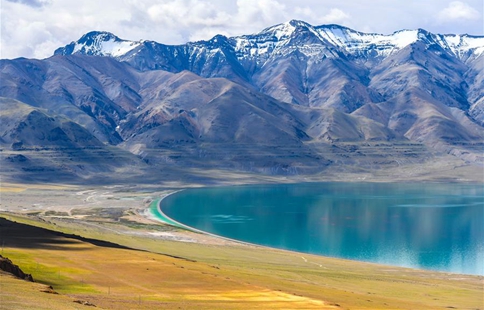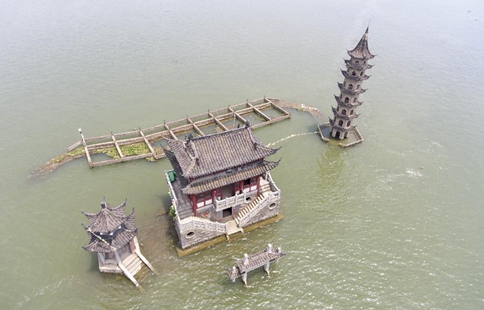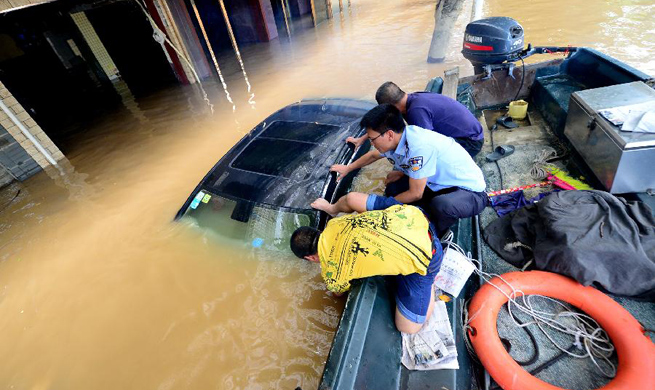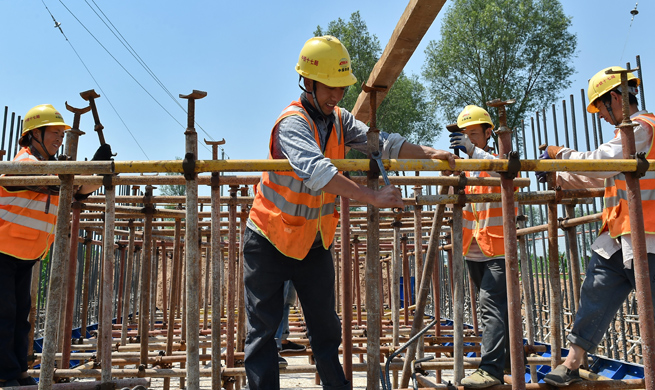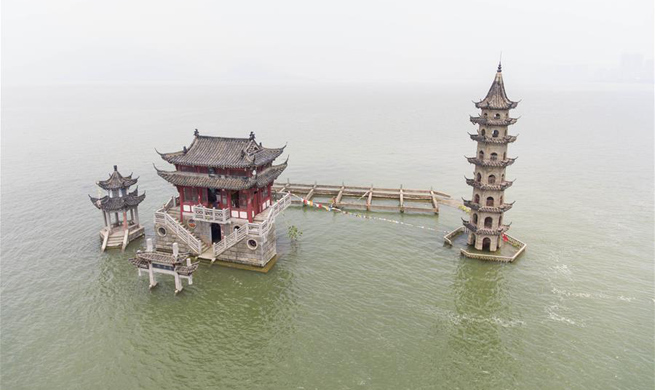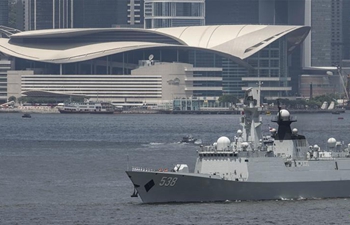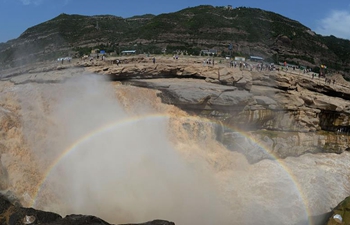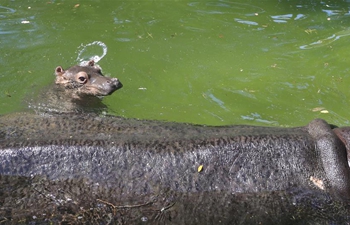DAMASCUS, July 13 (Xinhua) -- Hearing the news of Mosul's full-scale liberation by Iraqi Security Forces, young Syrian soldier Mahir said while waving his gun that "the days of the Islamic States (IS) group in Syria have been numbered."
During Mosul's July 10 liberation, Mahir's unit captured a number of IS strongholds in Syria's southern governorate of Sweida, making "strategic progress" in the anti-terror operation.
Protected by Syrian forces, Xinhua correspondents visited the fronts of the battle field the following day.
After a 60-km drive from the northern capital Damascus through several military checkpoints, the Xinhua correspondents finally reached the Asfar area in the northeast of Sweida.
Rolling wheels whipped up puffs of dust and sands, billowing wildly with the heat waves in the desert. In the distance were endless undulating mountains with black stones scattered here and there. < Built on the black lava, the city of Sweida got its name meaning "black" in Arabic. Bunkers were erected with large black rocks, and fully armed soldiers were seen holding assault rifles every several meters away. A giant T-72 battle tank was parked nearby, with its gun aiming straight toward east.
"There remain a number of IS militants. Yesterday we took over eight towns nearby and severed their east-west supply routes," said an officer pointing to the east. Dozens of young soldiers gathered around and expressed their joy of victory in front of the camera, chanting the name of their President Bashar al-Assad while waving their rifles.
Right behind the tank was the command post. Lined up along the hill dotted some stone houses, where the Syrian soldiers lived.
A closer look found that the houses were impoverished shelters with basic necessities such as beds and desks. Mahir said that they were living under hard conditions, even without drinking water, because the nearest water source was about 10 kilometers away.
Not far away from the front position was the newly recovered Asfar town. Traces of airstrikes were still visible with collapsed houses and broken ground. The soldiers led Xinhua correspondents into a school once occupied by the IS group, where a fierce firefight took place on Monday.
The walls of the teaching building were pockmarked with bullet holes, and a large hole left from a rocket explosion was seen at the entrance of the building.
Inside the building, glasses were shattered from the fight and the stairs were a mess of all sorts of things like computers or stationeries, all covered with a thick layer of dust.
Abandoned bunkers remained at the corner of the rooftop. Looked down from the above, the main frame of a basketball stood on the playground, on the top of which exposed several steel bars in threatening gestures, as if protesting the cruelty of war.
"The IS militants turned the school into a command post, driving hundreds of students out of school," said Mahir pointing to the rusted desks and chairs.
The town's police department was also once occupied and turned into a prison by the IS militants. Through the black barbed wire, an unpleasant smell emerged from a concrete privy in the "prison," whose iron-gated rooms were almost empty except for some threadbare mattresses, stale flour and canned food which has gone bad.
Air-raid shelters, often a few meters deep, were dug by the extremist militants to dodge airstrikes, and they each were capable of housing three to five people.
All the way along, Mahir had been carrying his rifle in vigilance to protect the visitors to the battle field, chatting in English that is only enough to be understandable.
"I'm 25 years old, but I'm already a veteran with four and a half years of combat experience," he said.






